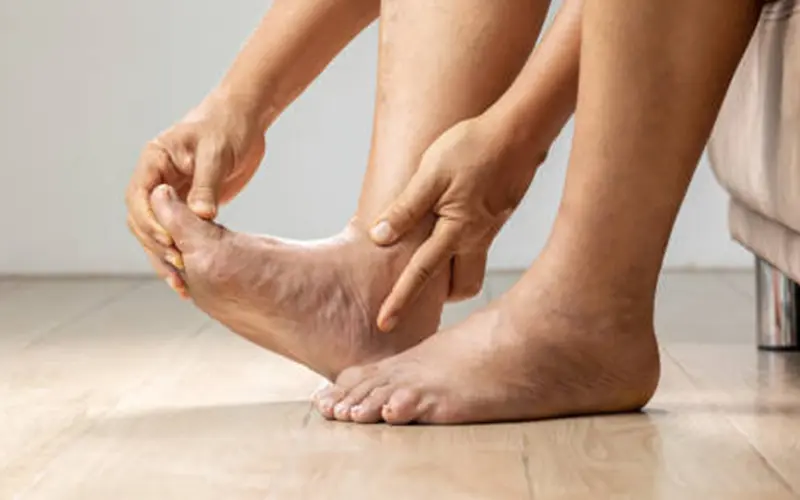Gout

Many people are under the impression that arthritis is a single condition. It is commonly associated with stiff, painful joints and develops over time as we age. While this might be true for at least one form of arthritis, there are actually over a hundred different arthritic conditions, including gout.
The numerous forms of arthritis develop for various reasons. Gout happens in response to a natural process that the body uses to break down foods. Accordingly, dietary choices play a role in the onset, treatment, and prevention of gout. If gout is a problem you are experiencing, our doctors are always ready to help you find the relief you need.
Gout Symptoms and Causes
This is a complicated form of arthritis that causes tenderness, redness, severe, and sudden attacks of pain (gout flares). These are most likely to occur in the joint that is formed where the big toe connects to the base of the foot. Attacks usually have a sudden onset and tend to happen in the middle of the night. The pain can be such that it feels as though the big toe is on fire. Any pressure or weight on the area (even a light bedsheet) can be unbearable.
When food is broken down, uric acid is the resulting byproduct. Gout happens when this byproduct is not properly flushed out of the system. The kidneys are responsible for filtering uric acid out of the body via urine, but this process doesn’t happen correctly for some people. Other people have bodies that produce too much uric acid. Either way, excess uric acid builds up in joints and form sharp urate crystals, which are the cause of the sharp, stabbing pain.
Food products that can result in excess uric acid production are known as purines and include foods like organ meats, steak, and seafood. Other examples are refined carbohydrates, sweets, fructose, and alcohol (especially beer).
Gout Treatment and Prevention
Fortunately, gout is treatable. When we administer professional treatment, medication is often an important component that serves to both treat and prevent acute attacks. Examples of medicines that help include medications to improve uric acid removal, various pain relievers, and medication to block or decrease uric acid production.
With regard to home treatment for gout, dietary and lifestyle changes can help. These include:
- Getting regular exercise and maintaining a healthy bodyweight.
- Limiting intake of high-purine foods like seafood, red meat, and organ meats.
- Limiting or avoiding alcoholic and sugary beverages, opting instead for water.
Whereas treatment methods can be effective, it is better to take measures to prevent gout from developing in the first place. These measures include:
- Avoid, (or limit), alcohol use. We can discuss together if any alcohol is safe for you, but it is worth noting that beer, in particular, has been linked to increased risk of gout symptoms.
- Drink plenty of water. Staying well-hydrated, especially by drinking water, will help to properly flush out uric acid. Keep the amount of drinks sweetened by high-fructose corn syrup to a minimum as well.
- Limit daily intake of fish, meat, and poultry. Small amounts of these proteins sources might be okay but check with us to find out quantities and types that work best for you.
- Maintain a healthy body weight. Applying the other measures will certainly help with this, but losing weight can help promote decreased levels of uric acid in the body. Avoid rapid weight loss or fasting, since these activities can actually raise uric acid levels.
- Practice clean eating. Center your diet on foods that are unprocessed. Whole grains, legumes, vegetables, fruits, and low-fat dairy should form the basis of a dietary plan that reduces your risk for gout and helps you feel great. Our staff can further help you put together the foundation of a diet that will keep gout away, while also contributing to your overall wellness.

Contact one of our Upperline Health clinics to get your Gout treatment started.
Treatments offered may vary by clinic.

